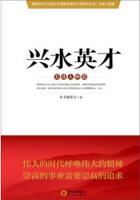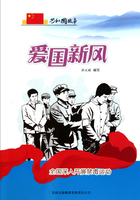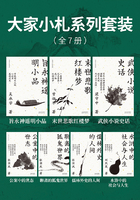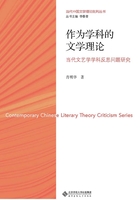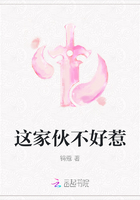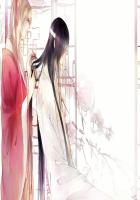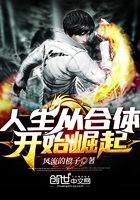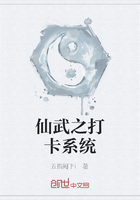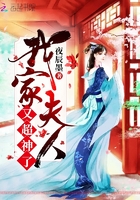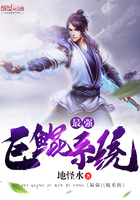Coincidently, there was a handsome scholar named Liu Sheng of whom the young mistress had dreamed. The young man came from a poor family in Lingnan and was now just over 20. Talented and hardworking, he has passed the imperial examination at the provincial level but hadn’t been able to continue on to become a jinshi, the successful candidate in the highest imperial examinations to be held in the capital. Not long ago, he dreamed of meeting a pretty girl under a plum tree in a beautiful garden. He heard her say: “Liu, you will not have a happy marriage and be successful in career without me”. He tried many times but still could not shake off the memory of the dream. He hoped it would bring him good luck. When he woke up, he changed his name to Liu Mengmei, literally, dreaming the plum, to commemorate their encounter.
Though Liu was well educated, he was nearly broke and could barely make ends meet by the income from a hunchbacked ser vant planting fruit trees. In hopes of something better, he went to his friend Han Zicai for advice. Han recommended Miao Shunbin, an imperial envoy. Miao has a deep appreciation and love for talents. He was also a connoisseur of the imperial court.
Guangzhou (Canton) was a trading port between the Song Dynasty and Southeast Asian countries and a depot for rare jewels and precious stones. Though Jin repeatedly invaded and harassed the land up in the north, the Song emperor still indulged himself with all sorts of wants. He would send his envoys to collect rare treasures. This was exactly Miao’s job. A big fair would be held every three years in Guangzhou where jewelers from the Southeast Asian countries would come and display their treasures. Han advised Liu to take the opportunity and meet Miao at the fair. He promised Liu that his talents would surely be recognized by the emperor’s envoy. Liu took his advice, packed up his belongs and left for the fair.
When he arrived at the temple where the fair was held, he begged for a meeting with Miao. The monk guarding the gate notified the official inside that a juren (literally “recommended man”, a successful examinee at provincial level each year) named Liu had requested to see the treasures. Since the fair was held simply for the imperial envoys to collect jewelries and the common people would not be allowed in. Luckily, this envoy had a high regard for scholars. He not only granted him entrance to the fair but also showed him around the temple to take a look at the treasures.
Amazed by the jewelries, Liu asked the envoy where they came from.
“From places hundreds of miles away.”
‘But how did they get here?”
“You are a funny guy,” the envoy laughed. “The royal court asked for them to come, with the promise of spending a lot of money, and so here they are.”
“Those lifeless treasures coming from places hundreds of miles away were of less value than a person,” Liu sighed. “No one bothers to spend any money on me.” I was wondering which the real treasure is?”
“You believe those jewels are fakes,” asked the envoy, oblivious to what Liu meant.
“Your Excellency. These precious stones may be priceless but they are not food when one is hungry and they are not clothes when one is cold so they are of little use to me. I would not consider them real treasures.”
“What would you consider the “real” treasures,” the envoy asked him with interest.
“Well, Song Dynasty has been invaded and is now in an unstable situation. To the imperial court, the most valuable “thing” ought to be the people who are willing to fight for the nation and try to help stabilize it. The emperor and his ministers of the monarchy should regard them as treasures and frankly I am one of those patriots,” answered Liu hoping to convince the envoy.
The envoy nodded vigorously in response. Liu shared his ideas with him on how to run the country. The envoy quickly appraised the man as an intelligent person with outstanding strategy. He asked Liu why he didn’t go to the capital city and showed his talents to the emperor.
“It is difficult for a poor scholar like me to become an official,” Liu sighed, “let alone to meet the emperor. And I don’t have enough money to get to the capital.”
“It may be difficult to become an official but not as difficult to meet the emperor. I can assist you.” With that the envoy instructed his assistant to give Liu enough money to get him comfortably to the capital.
“I am indebted to you for your kindness. I will begin my journey to the capital right now,” with that he was on his way.
He traveled by boat, but it was slow going. By the time he passed the Five Ridges it was wintertime. It was the longest journey he ever had. As the weather grew colder he fell sick. But he wouldn’t let his illness get in the way of his journey. By the time he reached Nan’an in Jiangxi province, it was snowing. The boat tipped when it passed a bridge and he fell into a river. The water was shallow but cold and he was sick and weak. Fortunately an old man riding a donkey happened to pass by. He saw Liu floundering in the water and crying for help. The old man hurried down his donkey, rushed to the riverbank and pulled him ashore. The old man was Chen, the old tutor of Du Liniang. Realizing how sick the young man was, the kindhearted old man persuaded him not to walk any further and convinced him to go take a rest at the nunnery nearby.
“It’s called Plum Blossom Nunnery and it’s not far from here. I happen to know some medical skills. Why don’t you put up for the night in the nunnery? Once you are better you can continue on with your journey.”
Liu agreed and thanked the old man for saving his life.


